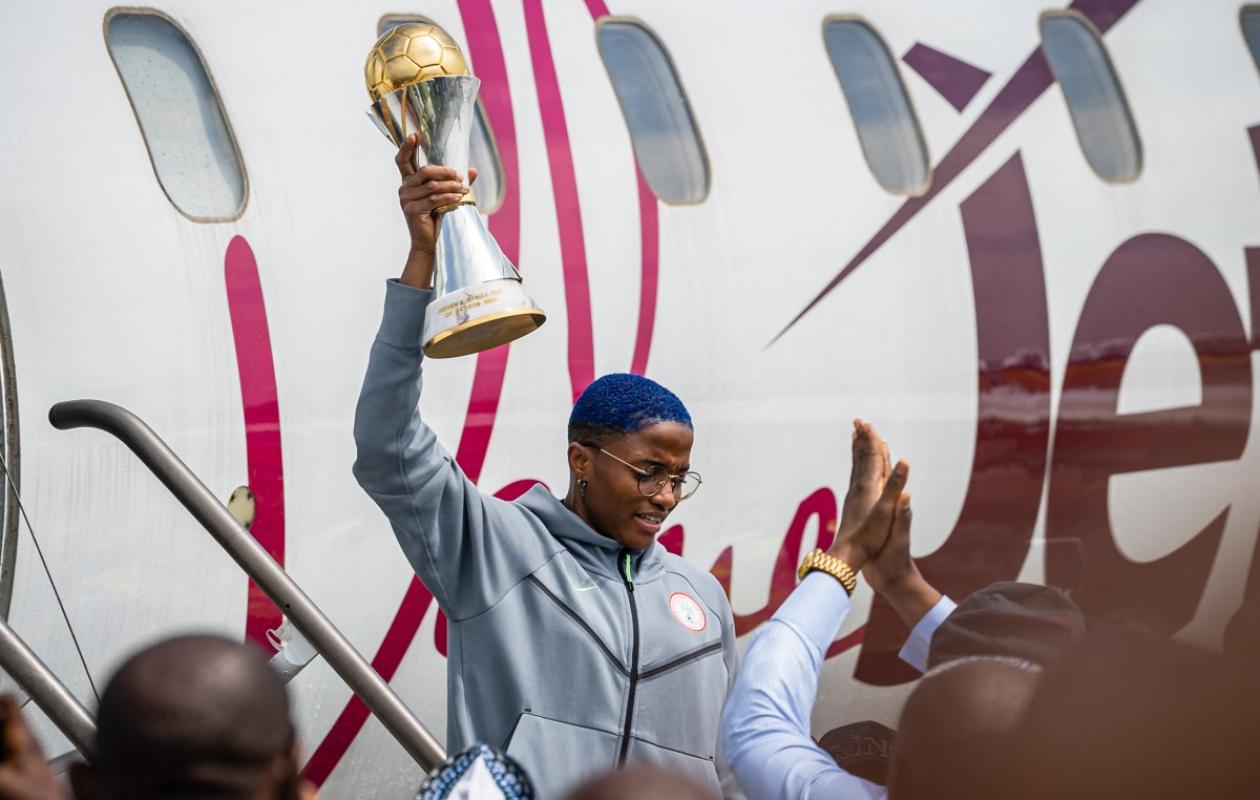
Les sportives nigérianes brillent en Afrique, malgré les obstacles à domicile
Dominant in international competitions, Nigerian basketball and football players face numerous obstacles at home: mismanagement, unequal pay, and reprisals against those who dare to denounce abuses.
Nigeria won the AfroBasket Women's final in early August, its fifth consecutive continental title. The previous week, the Nigerian Super Falcons won their tenth Women's Africa Cup of Nations (WAFCON).
Despite being the best in Africa, Nigerian female basketball and football players are paid far less than their male counterparts... when they are paid at all. Match and performance bonuses, which represent a large portion of their income, have been paid late for years, if at all.
But when the Super Falcons landed in Abuja at the end of July, after their victory at WAFCON against hosts Morocco (3-2), none of the players responded to questions from the press asking if they were going to demand that the Nigerian president, who was hosting them at his residence, be paid the same as the players on the men's team.
"If you speak out against what's happening, you completely lose the opportunity to get what you're entitled to, you could even be blacklisted," Solace Chukwu, editor-in-chief of Afrik-Foot Nigeria, told AFP.
In 2021, the basketball players called on the authorities to protest the non-payment of match bonuses. However, at the time, the Nigerian Basketball Federation simply denied any wrongdoing, citing simple administrative errors.
"Players who take the initiative or dare to protest always run the risk of not being called up or being sidelined altogether," adds Harrison Jalla, a representative of the players' union.
After speaking out against the non-payment of salaries during the 2019 Women's World Cup, Super Falcons captain Desire Oparanozie, now a commentator, was stripped of her captaincy and was not selected to compete at WAFCON in 2022.
At the time, the Nigerian Football Federation denied dismissing her over her comments. But former men's coach Sunday Oliseh—himself sidelined from the national team in the early 2000s after protests over salary arrears—saw the dismissal as "criminal" retaliation.
Neither the Nigerian Football Federation nor the Super Falcons responded to AFP about the players' alleged fear of speaking out publicly.
The success of the basketball and football players is partly explained by the reservoir provided by the country's large population - the most populous in Africa with 200 million inhabitants - and its large diaspora.
But the women's basketball and football teams also benefited from early investments, at a time when other African countries were focusing on the men's teams, Chukwu points out. This enabled the Super Falcons to win the first seven editions of WAFCON, from 1991 to 2006.
Players and staff members continue to hope for a change in the way female athletes are treated in Nigeria.
Aisha Falode, an official with the Nigerian Football Federation, called on the government to "invest in equipment, leagues and players, because women's football can no longer be taken lightly."
Despite these challenges, the sport continues to attract young girls. The exploits of the Super Falcons footballers have inspired 16-year-old Justina Oche, a football player at a football school in Abuja, to pursue a career in the sport.
"They say that what a man can do, a woman can do even better," the young woman, whose idol is Asisat Oshoala, six times voted African footballer of the year, told AFP. "The Super Falcons have proven it again."
Commentaires (2)
Les gars qu'est-ce que vous en pensez ?
Comparaître la femme à l'homme, je trouve cela absurde
Participer à la Discussion